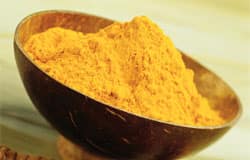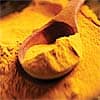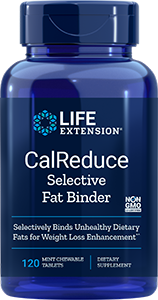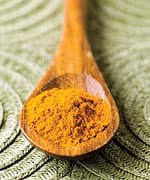|
Tuesday, October 7, 2014. The journal PLOS One published an article on September 19 demonstrating BCM-95® curcumin altered the microenvironment of a colorectal cancer cell culture model, thereby reducing tumor promoting factors and potentially enhancing chemotherapy effectiveness.
"Accumulating evidence suggests that the development and progression of colorectal cancer is due to genetic and epigenetic alterations that are the result of complex interactions of transformed cells with their microenvironment," explain authors Constanze Buhrmann of Ludwig Maximilian University in Germany and her colleagues. "The tumor microenvironment is regarded as the tumor bed, which comprises of resident components, such as stromal cells and the factors that are stable within the milieu of the stroma, and nonresident components such as different immune cell populations, which influence tumor invasion and metastasis. The synergistic impact of the microenvironment on inflammatory responses and tumor progression is now considered to be an essential feature of carcinogenesis, and there is growing interest in the identification of agents that specifically target the pathway interaction between the tumor and stromal cells."
Dr Buhrmann and associates cultured human colon cancer cells with human stromal fibroblast cells for three days. They observed clustering of the cancer cells around the stromal cells, which established close cell-to-cell contact. This cellular interaction was associated with increased expression of adhesion and metastatic molecules, active cell cycle proteins, transforming growth factor-beta3 (TGF-beta3) and vimentin, which is a marker of epithelial to mesenchymal transition (EMT), a process that supports the initiation of metastasis.
The team then employed a three dimensional high density tumor microenvironment in which colon cancer cells were co-cultured with stromal cells and treated with varying concentrations of BCM-95® curcumin and/or the chemotherapeutic drug 5-fluorouracil (5-FU). While 5-FU alone increased tumor-promoting factors, TGF-beta3, and EMT, pretreatment with curcumin prior to 5-FU administration reduced these factors. Treatment with 5-FU and/or curcumin promoted disintegration of high-density tumor spheres, an effect that was greater in curcumin-treated co-cultures.
Cancer stem cells, which are believed to be responsible for treatment resistance and tumor recurrence, were more numerous in co-cultured cancer and stromal cells in comparison with cancer cells alone, indicating the role of crosstalk in supporting in tumor promotion. Administration of curcumin with or without 5-FU inhibited and diminished the expression of cancer stem cell markers, while 5-FU alone was associated with an increase—a fact that the authors attribute to a defense reaction of the tumor cell culture and microenvironment.
The results, according to the authors, demonstrate "for the first time, the modulating effect of curcumin on the crosstalk between the colorectal cancer cells/cancer stem cells and the fibroblasts in the tumor microenvironment, creating an adequate climate for more effective chemotherapeutic action of 5-FU to specifically target chemoresistant colorectal cancer cells."
They conclude "that the natural NF-kB inhibitor curcumin is a promising modulator of the synergistic crosstalk in the tumor microenvironment and curcumin-based anti-EMT and tumor progression may be a promising therapeutic strategy to prevent resistance to chemotherapeutic agents, sensitizing cancer stem cells to 5-FU and impede metastasis."
|








